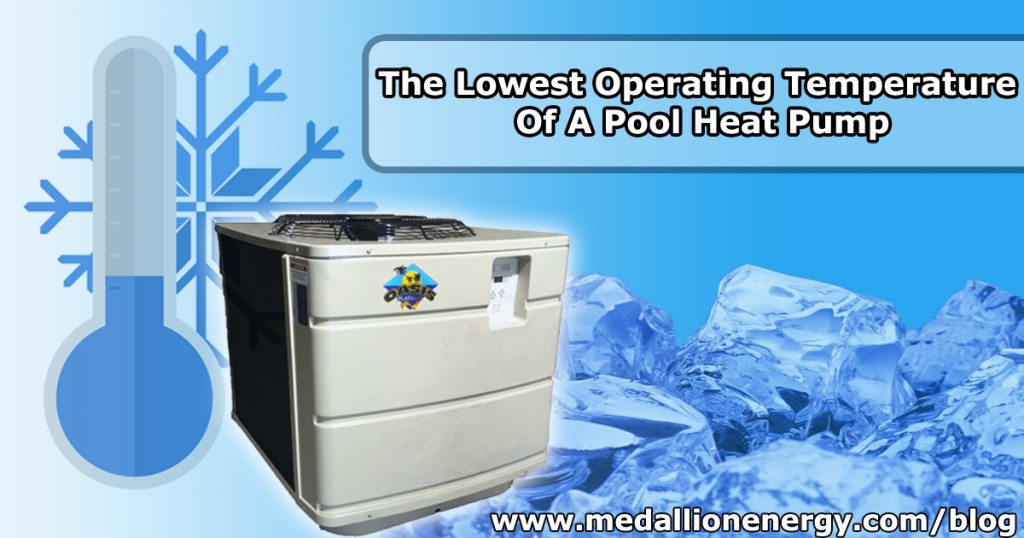What’s the lowest temperature a pool heat pump can operate at?
One of the burning questions of prospective pool heat pump owners everywhere. Pool heat pumps can easily do the job of heating up our pools, but it’s important to consider how outside temperature correlates to a unit’s performance. Before we answer the main question at hand, let’s introduce a simple yet informative principle.
The Potential Of A Pool Heat Pump
In ideal conditions, a heat pump will provide up to a 30-degree increase in respect to external temperature. For instance, if external temperature sits at 60 degrees, then it’s safe to say that the pool heat pump could heat up to 90 degrees. Of course there is a limit to how much a heat pump can heat up – in respect to consumer safety, 104 degrees Fahrenheit tends to be the industry standard for temperature cutoff.
Lowest Operating Temperatures
Most heat pumps will effectively heat a pool down to an external temperature of 50 degrees Fahrenheit while more advanced units are able to operate down to 40 degrees. That being said, we must remember that pool heat pumps thrive on heat from the atmosphere. Because of this, during operation at lower temperatures, a pool heat pump may not be able to heat up the pool quite as high as preferred, but still up to comfortably swimmable standards.
Granted, most pool owners aren’t swimming in their pool once it gets that cold – but for frigid temperature aficionados, a backup pool heating unit typically resolves any potential problems.
Performance and Temperature
Although external temperature certainly affects how much a pool heat pump can heat up a pool, it doesn’t change how the job is done – well not entirely. The process typically begins with the unit pulling in heat over the evaporator coil. However, during the colder months, the condensate that forms on the evaporator coil can freeze. At this point, most units will automatically shut down, but more advanced units come equipped with a defense mechanism of sorts. This mechanism is called a reversing cycle – it allows the unit to reverse the flow of the refrigerant gas to act as a defroster. Units that operate at colder temperatures can usually do so because of this feature.
Conclusion
Pool heat pumps are designed to extend your swimming season at a fraction of the cost of other pool heating methods. A well-maintained heat pump will do just that, and should provide you with more than enough quality swimming time throughout the year.
Depending on your personal preference, you may want to consider installing a backup unit.
(You can learn more about the different types of pool heaters here.)


